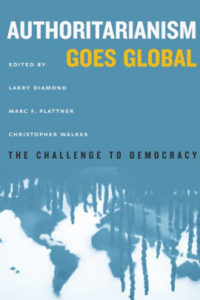Economic competitiveness thus matters to not only protect the country’s national security innovation base, but also to reinforce that liberal, market democracies can deliver for all citizens in this moment of authoritarian resurgence, a recent forum at Dartmouth College heard.
Shoring up democracy against authoritarian pushback requires expanding the scope of the foreign policy discussion, and therefore building new tools or increasing resources to relevant existing ones, writes Brookings analyst Will Moreland.* That work exists as much at home as abroad. An effective approach will require policies “including major new investments in infrastructure, research and development, education, development assistance, intelligence, alliances”—not only defense, he adds, reporting on the latest public debate on America’s Role in the World, organized by Foreign Policy at Brookings and the Charles Koch Institute.
What we are seeing is a new phase of the foreign policy dialogue, one in which both “restrainers” and “internationalists” are sharpening and refining their arguments, notes Moreland, a Penn Kemble fellow at the National Endowment for Democracy:
Within “the establishment,” innovative efforts are testing assumptions and expanding the boundaries of the foreign policy conversation on both sides of the aisle. Simultaneously, critics of traditional American foreign policy are elaborating on how to operationalize potential alternatives. The public, as well, is stepping up its engagement, asking tougher, more nuanced questions to both sides of the debate.
*Project Manager and Associate Fellow – Foreign Policy, Special and Collaborative Initiatives, The Brookings Institution. MorelandBW







